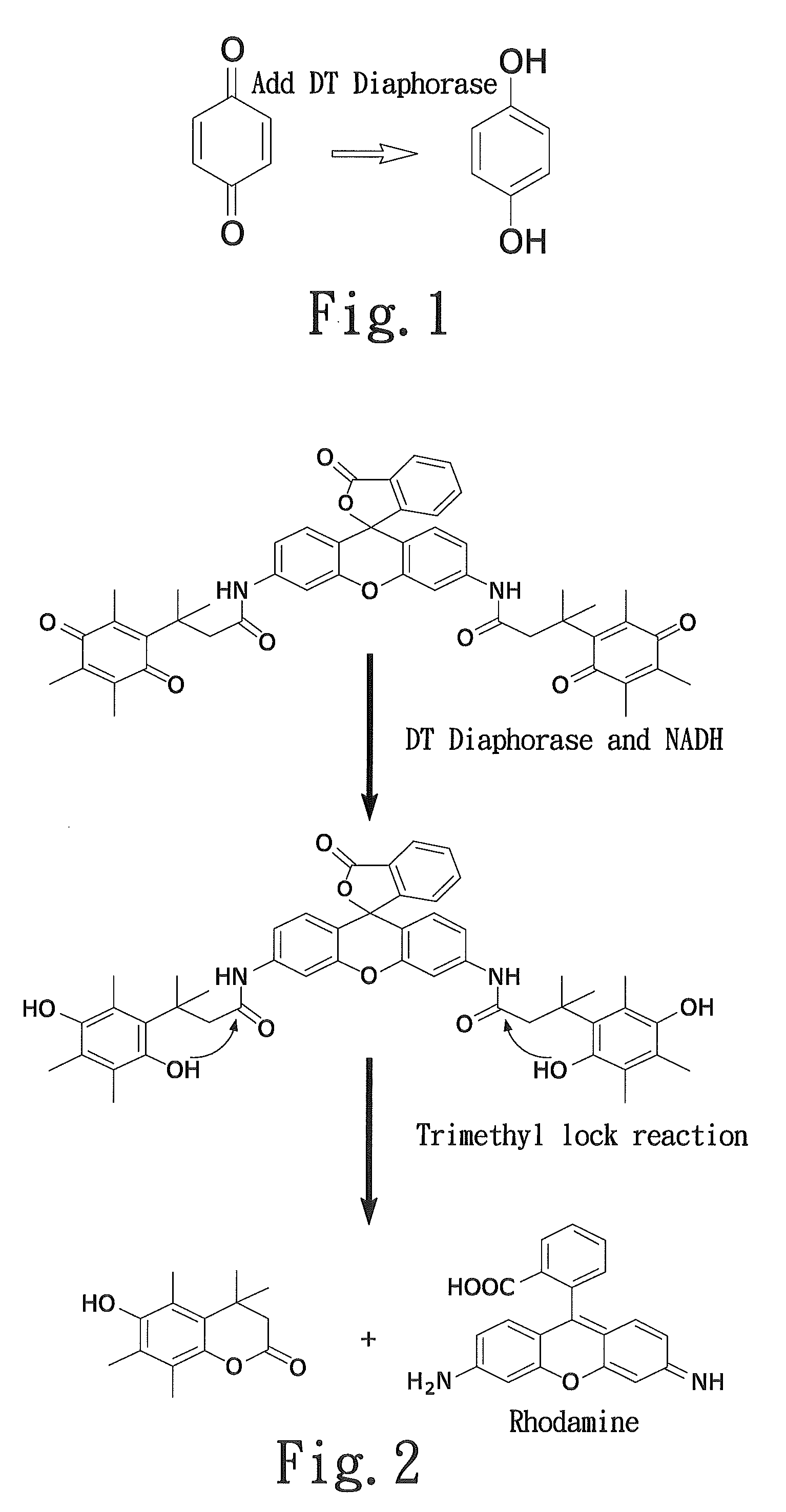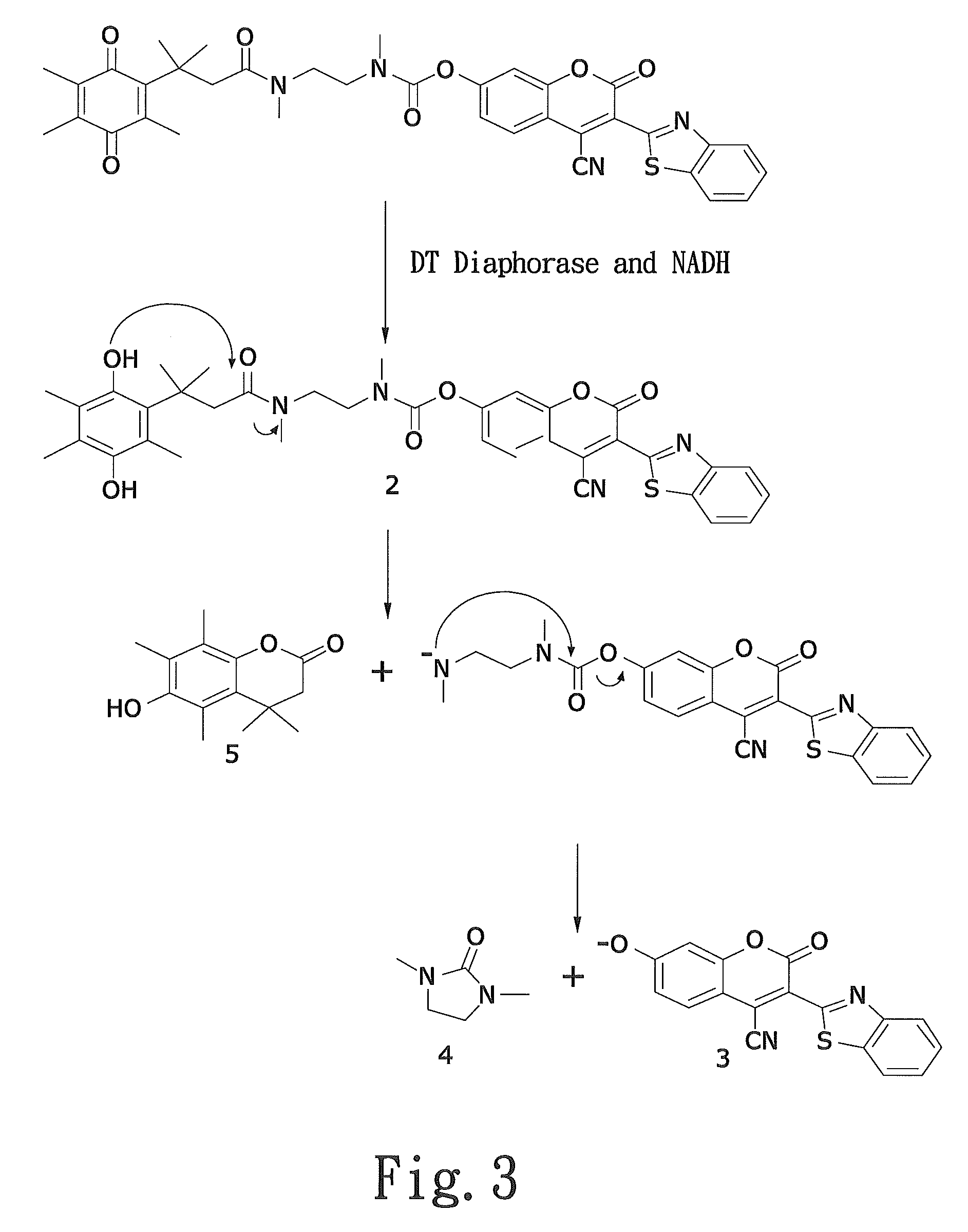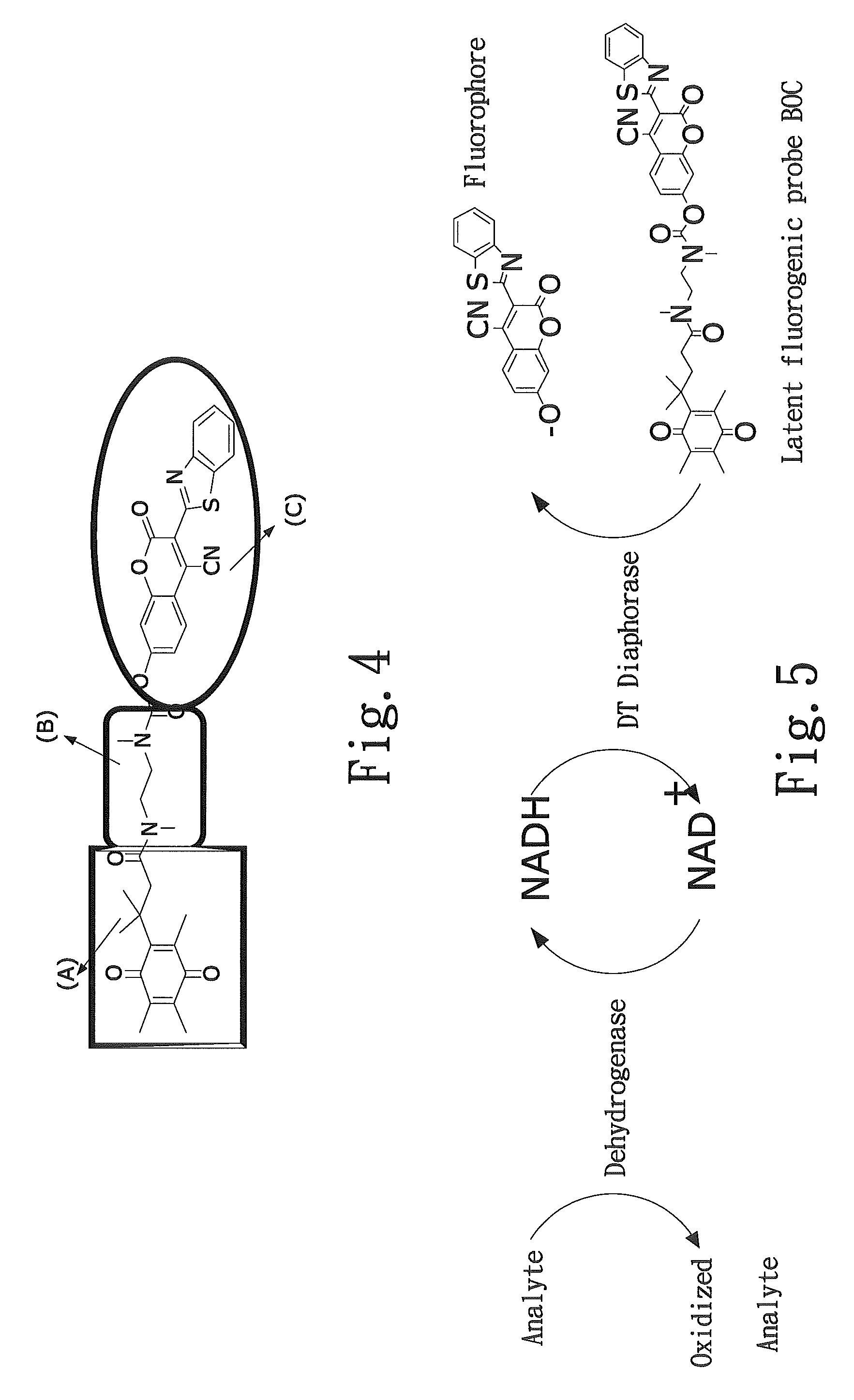Latent fluorimetric indicator for biological analytes determination and the preparation method thereof
a technology of latent fluorimetric indicators and biological analytes, applied in biochemistry apparatus and processes, organic chemistry, organic dyes, etc., can solve the problems of revealing or diminishing the fluorescence of known oxygen-dependent fluorimetric detection reagents for determining analytes, prone to interference with catalytic reactions, and revealing or diminishing fluorescen
- Summary
- Abstract
- Description
- Claims
- Application Information
AI Technical Summary
Benefits of technology
Problems solved by technology
Method used
Image
Examples
Embodiment Construction
[0007]The invention describes the new design and preparation of a new latent fluorimetric indicator to rectify the previous designing drawbacks. The present invention redesigns the prior latent fluorophore, BQRh, by extending the separation between the benzoquinone moiety and the bulky fluorescent dye to minimize the steric interference in FIG. 3. Furthermore, the new latent fluorimetric indicator incorporates a masked long wavelength fluorescence dyes to enhance the sensitivity of the detection by avoided the background fluorescence signal generating from the biological samples. The fluorescent signal is revealed through series of tandem reactions in FIG. 3. The initiating of the trimethyl-lock cyclization reaction was through reducing the quinone moiety in new latent fluorimetric indicator by DTD in the presence of NADH to generate highly reactive phenol. The highly reactive phenol undergoes the trimethyl-lock lactone formation to yield the lactone with a concomitant released of t...
PUM
 Login to View More
Login to View More Abstract
Description
Claims
Application Information
 Login to View More
Login to View More - R&D
- Intellectual Property
- Life Sciences
- Materials
- Tech Scout
- Unparalleled Data Quality
- Higher Quality Content
- 60% Fewer Hallucinations
Browse by: Latest US Patents, China's latest patents, Technical Efficacy Thesaurus, Application Domain, Technology Topic, Popular Technical Reports.
© 2025 PatSnap. All rights reserved.Legal|Privacy policy|Modern Slavery Act Transparency Statement|Sitemap|About US| Contact US: help@patsnap.com



